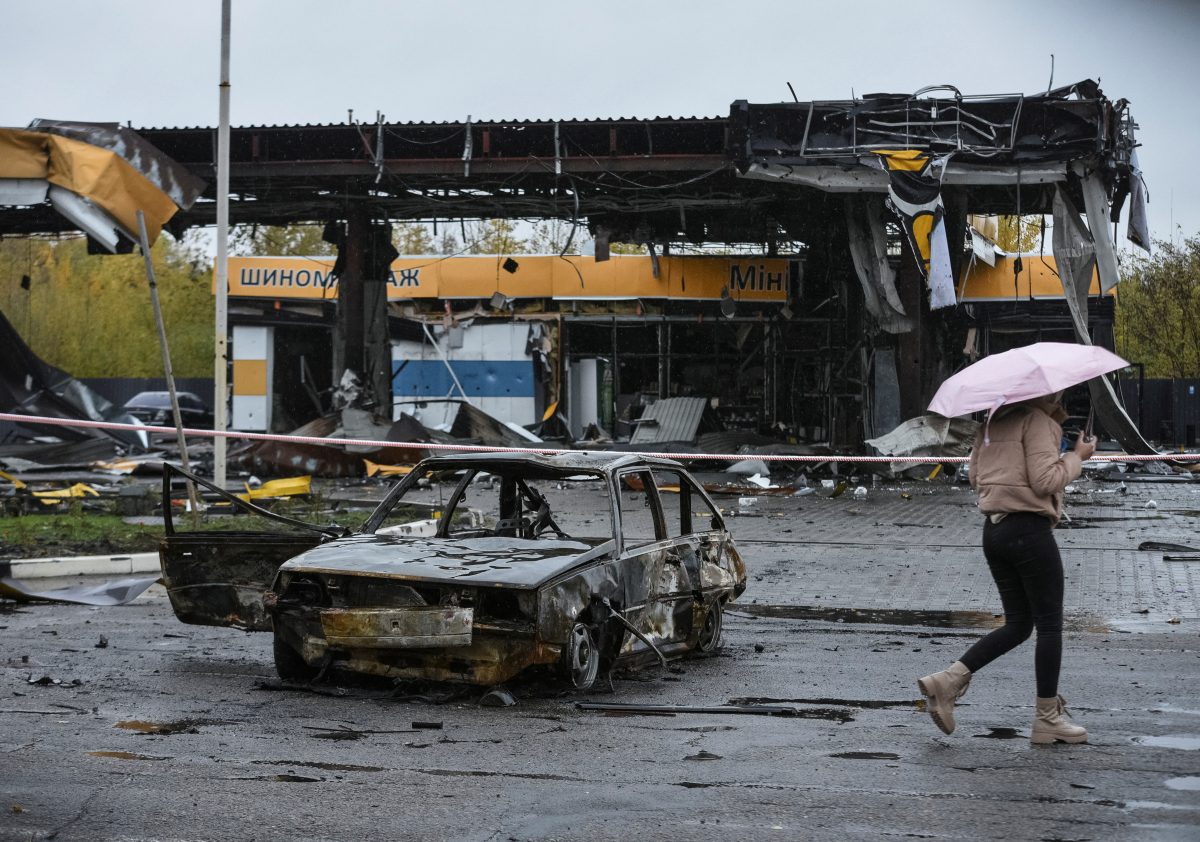LONDON/KYIV, (Reuters) – A senior Russian government official raised the possibility that Moscow could shoot down commercial Western satellites being used to help Ukraine’s war effort, as Russia pressed ahead with its bombing campaign against Ukrainian infrastructure.
If acted on, the threat would inevitably raise fears about spiralling escalation of the eight-month-old conflict and the risk of direct confrontation between Russia and the West.
There was no immediate reaction from the United States or commercial satellite providers.
Konstantin Vorontsov, a senior Russian foreign ministry official, said the use of Western satellites to aid the Ukrainian war effort was “an extremely dangerous trend”.
“Quasi-civilian infrastructure may be a legitimate target for a retaliatory strike,” he told the United Nations First Committee, adding that the West’s use of such satellites to support Ukraine was “provocative”.
“We are talking about the involvement of components of civilian space infrastructure, including commercial, by the United States and its allies in armed conflicts,” said Vorontsov.
He did not mention any specific satellite companies, though Elon Musk said earlier this month that his rocket company SpaceX would continue to fund its Starlink internet service in Ukraine, citing the need for “good deeds”.
Russia has a significant offensive space capability – as do the United States and China. In 2021, Russia launched an anti-satellite missile to destroy one of its own satellites.
Moscow in August accused the United States of direct involvement in the war after Vadym Skibitsky, Ukraine’s deputy head of military intelligence, told Britain’s Telegraph newspaper that Kyiv was using U.S.-supplied High Mobility Artillery Rocket System (HIMARS) launchers based on what he called excellent satellite imagery and real-time information.
Satellite images of the conflict zone captured by commercial U.S. satellite imagery firms are pored over daily on Twitter by open source intelligence experts who highlight the coordinates of potential Russian military vulnerabilities.
INFRASTRUCTURE ATTACK
With Ukraine’s counteroffensive in its southern Kherson region slowing down in recent days due to wet weather and difficult terrain, and no dramatic changes in the east either, Kyiv said Russia was pressing ahead with a campaign to destroy critical infrastructure ahead of the winter.
Ukrainian officials have said the campaign was aimed at breaking people’s spirit to resist by depriving them of basic utilities such as light and heat, a strategy they say is doomed to failure.
Russia says it is targeting infrastructure as part of what it calls its “special military operation” to degrade the Ukrainian military and remove what it says is a potential threat against its own security.
Oleksiy Kuleba, the governor of the Kyiv region, said the area, including the capital city itself, faced a 30% deficit in its capacity to generate the power it needs after overnight Russian strikes.
“Last night the enemy damaged the facilities of the energy infrastructure of our region. A number of critical facilities have been disabled,” Kuleba said in a video clip on the Telegram messaging app.
Separately, the Kyiv region’s military administration said the region must “prepare for emergency power outages for an indefinite period” due to the strikes.
Ukrainian grid operator Ukrenergo said the power grid across central Ukraine had been hit overnight and that further electricity supply restrictions were possible.
CALL TO CUT ENERGY USE
Russia has used air strikes, missiles and Iranian-made drones to step up its strikes against Ukrainian infrastructure in recent weeks, leaving millions without electricity or heating, and sometimes water, for lengthy periods of time.
Oleksandr Starukh, governor of the southern Zaporizhzhia region, said that Russian shells had struck the outskirts of the city of the same name overnight and destroyed an unspecified infrastructure object.
The Ukrainian military said that around two dozen Iranian-made “Shahed-136” drones had targeted the south of the country after taking off from Crimea, which Russia annexed in 2014.
Air defence forces shot down three over the Mykolaiv region, 15 over the Odesa region, and another over the Vinnytsia region, the military said. The Ukrainian air force said on Telegram it had shot down a Russian Kas-52 attack helicopter and a Su-25 attack aircraft in the south on Thursday morning.
The Russian defence ministry, which said its forces had repelled attempted Ukrainian advances in the east, said it had destroyed a Ukrainian military factory producing solid rocket fuel, explosives and gunpowder near the town of Pavlograd in the Dnipropetrovsk Region.
It said it had also shot down a Ukrainian air force Mi-8 helicopter.
Reuters could not verify the battlefield accounts.
Ukrainian President Volodymyr Zelenskiy, in a late night address to the nation on Wednesday, said he had held a meeting with government officials to discuss the energy crisis.
He called on people to limit power use for the time being.
“In many cities and regions of Ukraine, emergency blackouts happen and power consumption has to be limited,” he said.
“But we all have to remember one thing: we need victory over Russia in the energy sphere as well.”






